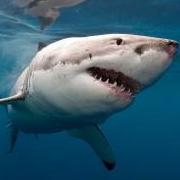-
Topics
-
Latest Update
-
2
-
3
Decomm Sales - Lots of Good Stuff, Good Deals!!!
UPDATE : Eco Tech XR15 G5 set of 3 units on a 4ft original railing/stand : $1,500 $1,200 (negotiable) 2. Maxpect Protein Skimmer MJ-SK400 : $400 (Still available) 3. Teco Chiller TK 1000 : $550 (Sold) 4. Teco Chiller TK 2000 : $650 (Negotiable) 5. Kamoer F4 Pro WiFi Dosing Pump : $150 - Sold 6. Jebao Return Pump MDP-3500 : $80 7. ZACRO CY-009 Auto Feeder : $20 8. Pro Reef 4.8l (3 x 1.6L) compartment Acrylic dosing container : $30 Sold 9. 5 stage RODI unit with booster pump, TDS meter and meter gauge : Sold -
-
2
WTS - Toadstool
Also plan to let go of the other entire Toadstool on the right. 20cm stem and 20cm crown. But need declare that there are colonial hydroids growing on the rock it is attached to. PM your offer. Will let go if price is right. -
2
WTS - Toadstool
Time to trim my Toadstool. The crown already more than 30cm across. There will be quite a few cuts, estimate 6x8cm or more for each piece. $7 per piece, $10 for 2pcs. Note: This will be loose pieces, meaning not attached to frags or rocks yet. Don’t have the time to wait as want to clear space.
-

.thumb.jpg.8e6fdd40fd1965478c572ca55566b726.jpg)





Recommended Posts
Join the conversation
You can post now and register later. If you have an account, sign in now to post with your account.